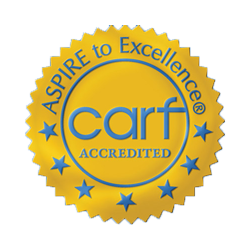
What role do family dynamics play in addiction?
Family dynamics have the power to either enable an addiction to continue or promote the discontinuance of substance abuse. Oftentimes a family member of someone with a drug or alcohol addiction will unknowingly enable an addiction to continue, rather than helping put an end to the addiction. In short, family dynamics often reinforce addictive behaviors.
Enabling
Enabling is common within families of individuals suffering from drug or alcohol addiction. Enabling occurs when family members of an addict come to the addict’s aid to help manage the addiction, but instead of helping the addict put an end to the addiction, the family members instead help the addiction to continue. A parent who is used to watching out for the addict’s financial stability, for example, might pick up paying the rent when the addiction has put too much of a strain on the addict’s budget. Or, a sibling might help take care of family responsibilities that the addict is not able to meet as a result of the addiction. Family members also enable by easing legal trouble, making excuses to the addict’s employer, making excuses to extended family when the addict misses important events, etc. Any type of aid that makes it easier for an addiction to continue creates an enabling dynamic.
Codependency
Codependency is also common in families affected by addiction. Codependency occurs when a family member of the addict, be it a spouse, sibling, or parent, becomes reliant on the addict’s substance abuse. It may sound like a strange dynamic, since family members of addicts typically want what’s best for the addict, and they do not necessarily wish for the addiction to continue. But that is what makes codependent relationships so complex. The family member might grow to believe that he or she must support their loved who is battling addiction, even when the addict’s behavior has many negative consequences. The addict, meanwhile, might convince a family member that they need the family member’s help, possibly even to acquire more of the abused substance. The family member then becomes someone who believes he or she must help the addict, or else the addict might be harmed.
Healing for Families
We offer family counseling services as part of our intensive outpatient substance abuse treatment program to help family members of recovering addicts find the healing they need. This comprehensive approach to recovery helps those who are overcoming addiction repair those relationships that may have been harmed as a result of addiction.










